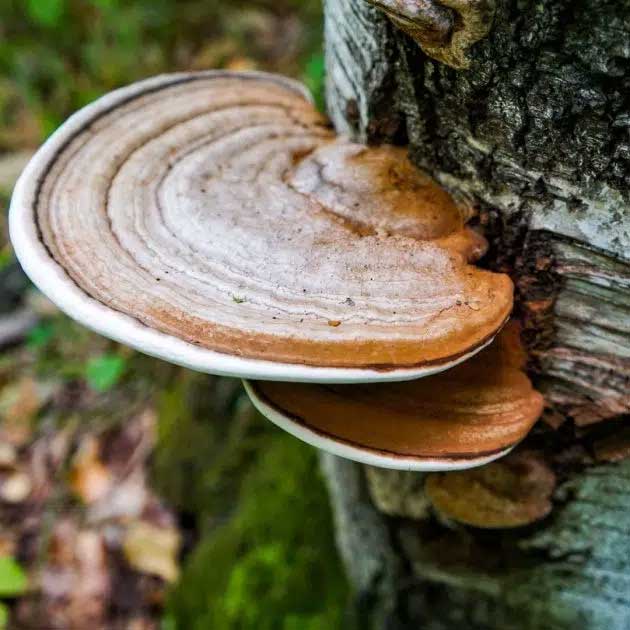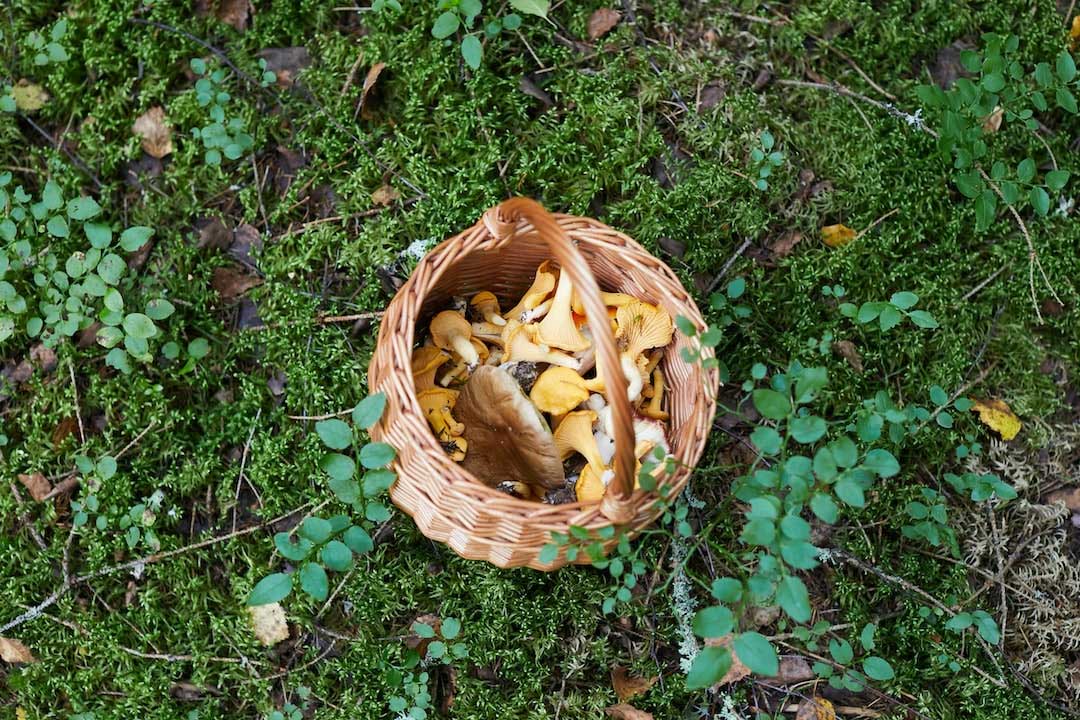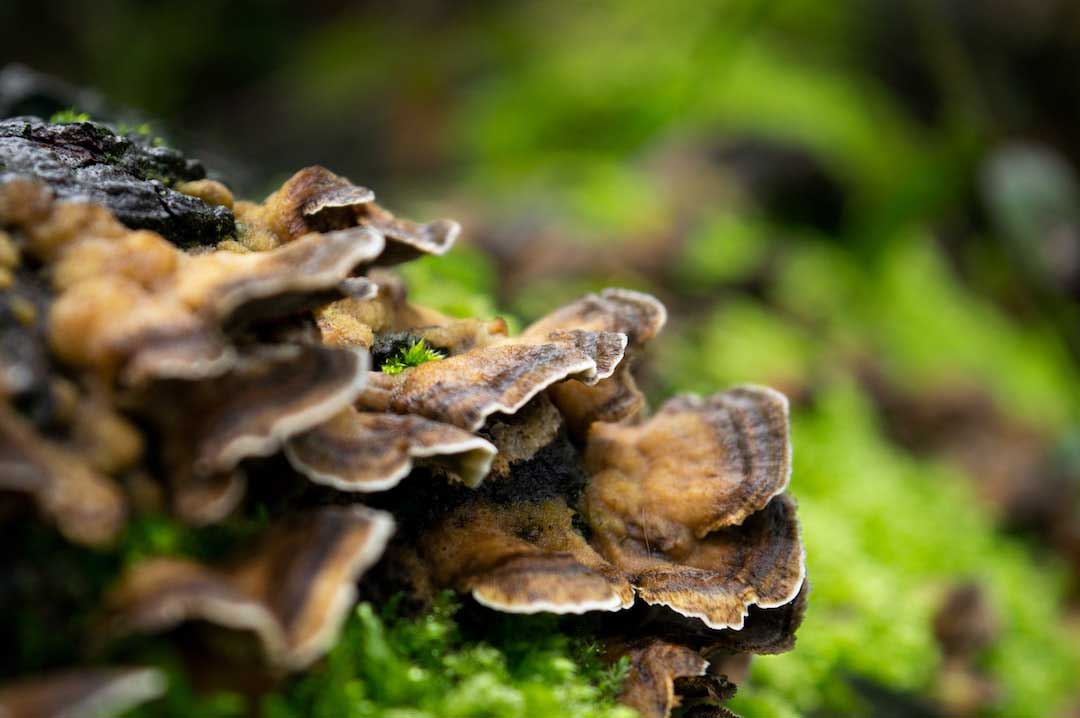INTRODUCTION
Drinking mushrooms in your coffee or smoothie, adding them to your supplement routine to help fend off colds, support skin health, and improve sleep or performance? While definitely not a new thing (some date back before our time), therapeutic mushrooms are making headlines across nutrition categories (food, beverage, supplement) for their well-studied, evidence-based abilities to promote better health.
Can medicinal mushrooms help reduce your inflammation? This is an especially relevant question for those of us with chronic inflammatory conditions like an autoimmune disease such as rheumatoid arthritis. Read on to get all the deets on these guys and learn how they may benefit your health.
WHAT ARE MEDICINAL MUSHROOMS?

A mushroom is a fungus. Like probiotics, omegas, and leafy greens, the fungal kingdom is very diverse. They contain beta-glucans, antioxidants, and other plant nutrients. For example, mushrooms when exposed to sunlight provide vitamin D2. These fungi also have a unique antioxidant L-ergothioneine for which all mammals have an active transport mechanism. This means it is easy for us to bring it into areas of distress and free radical damage.
Therapeutic mushrooms provide your body with different bioactives that can help it adapt for better health. Their development includes spores germination to produce the mycelium from which the fruiting body develops.
The mycelium is a longer-lasting phase of growth and its nutrients are more easily available unlike the fruiting body with thicker cell walls which requires heat to release the beta-glucans. The nutrients a product delivers depend on what part of the mushroom it contains. In most cases, the better product contains the whole mushroom – the mycelium and the fruiting body.
Too science-y for ya?! Think of mushrooms like a coconut – a young baby one packs coconut water (a great source for potassium) which is (relatively) easily accessible – we just need to crack the coconut open or get a straw through the green wall. A mature coconut shell is thick, hairy, and has several layers of delicious flesh but we have to work to scrape it out or it gets melted down to get its oils, sugar, and butter. Make sense?
5 BENEFITS OF MEDICINAL MUSHROOMS

- Adaptogens – they help the individual body adapt to stress for better health outcomes including stress reduction, sleep, physical performance, mental focus, etc.
- Antioxidant activity – which is necessary daily as everything from normal living, stresses (good and bad), our nutrition choices as well as environmental pollutants can produce free radicals which need to be removed by antioxidants to reduce health risks like inflammation.
- Immune support – helping our body’s army recognize unwanted guests, and wage more effective battles on all fronts. Mushrooms can also help balance an overactive or misdirected immune function.
- Digestive health – helping to promote healthy digestion and the benefits that come with it like better skin, metabolism, immune health, and energy. Whole powders contain insoluble fiber, prebiotics, and digestive enzymes to optimize gut health and manage inflammation.
- Mental health support – including recovery from trauma and cognitive decline.
DIFFERENT KINDS OF MEDICINAL MUSHROOMS

- Wildcrafted – while we love to see images of foraging in the pristine wilderness, not much about that translates to wild mushrooms. Fungi in the wild absorb everything from their surroundings including pollutants (air, water, soil), insects, animal feces, and even radiation.
- Medicinal extracts – rarely is a part better than a whole. We see this in other categories like omega 3s which you can get from wild salmon, hemp seeds, and walnuts, or as isolates of DHA and EPA. The research, especially for wild salmon and walnuts (there isn’t much research on hemp seeds yet), consistently shows health benefits where that on the isolates alternates from favorable to not so. This can depend on the product quality, and how the extraction occurs, but more likely has to do with the relationship between the other compounds and how they support the omega fatty acid.
- Whole powders grown in a controlled (protected) environment are likely our better choices today to get all the therapeutic benefits without unwanted ingredients. Medicinal mushrooms grown in a controlled environment are not all created equal. What the mycelium feeds on to grow will impact its nutrient load and value. The medium the mushrooms are grown on is called the “substrate” and it can have as much variety as what animals are fed on farms. Your better choices include organic and non-GMO.
WHY CHOOSE BETTER QUALITY ‘SHROOMS?

A picture says a thousand words but NONE of them tell you the country of origin, what the mushroom is fed, how much is in the product you consume, or anything about the overall quality of the mushroom. Always do your research and keep these tips in mind:
- Use third-party, trusted sources like USDA organic, NSF, Non-GMO project, and The Detox Project as indicators of ingredient vetting.
- Know the country of origin for the mushroom not just where it is processed or packaged. This can be tricky so ask “where are the mushrooms grown?”
- An extract should be listed as such, but may not be, it could say “lion’s mane” and you won’t know if it’s an extract or not. Ask questions!
- A whole mushroom should be labeled to include what it is grown on and the parts of the mushroom you are getting. For example, reishi (gandoerm lucindum) with XXX myceliated on organic oats with a fruiting body.
- How much mushroom is in the product should also be listed or provided on request. Ingredients are listed in order of greatest amount to least, and a little mushroom can go a long way, but especially for help with health goals, you want to know if you are getting an effective dose of the mushrooms.
- Pills, potions, powders, and even coffee have other ingredients – they all need to be better and considered so avoid medicinal mushroom products with artificial ingredients, too much-added sugar, or other questionable ingredients such as binders and fillers.
CONCLUSION
Well, there you have it – medicinal mushrooms have many benefits the least of which is as a tool to keep inflammation at bay. A key point to remember is to choose a good quality product from a reputable manufacturer. And always do your research before putting your money down!

